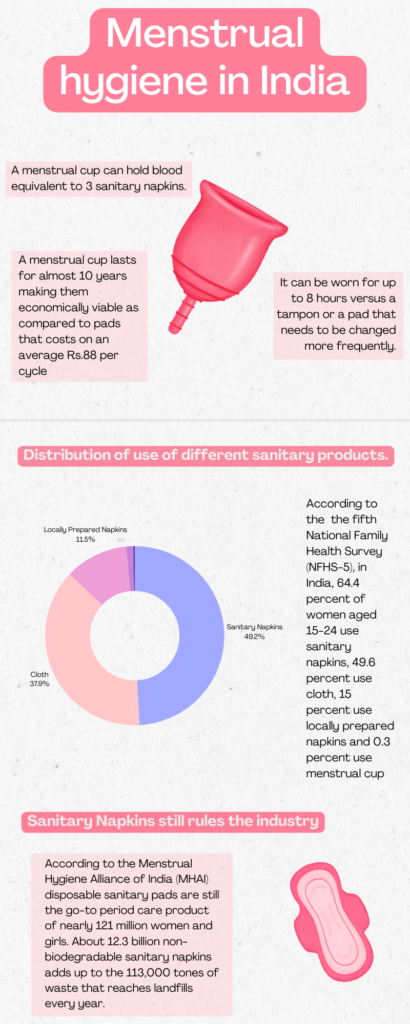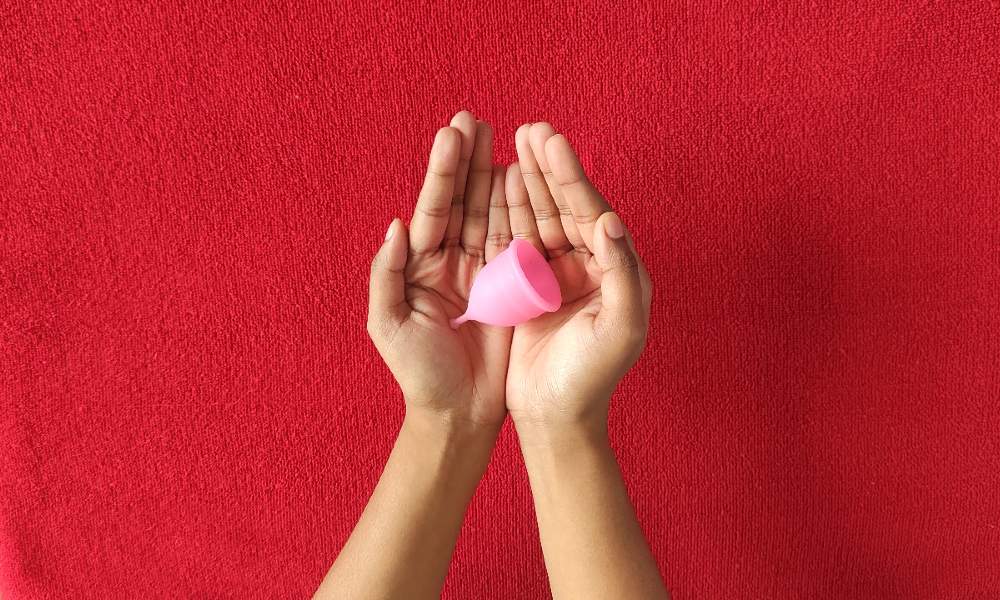However, for a significant number, they still remain a taboo.
The city has witnessed an increase in the sales of menstrual cups in the years after the COVID-19 pandemic. Rupal Ralph, co- Chief Executive Officer (co-CEO) of Stonesoup, a company based in Bangalore that sells eco-friendly and sustainable products including menstrual cups said, “We have approximately one lakh customers for menstrual cups in Bangalore.” The number of menstrual cup users has increased recently as a result of the increased awareness, Rupal added.
Aditya Arora working with Pee Safe, a multi-product firm that sells menstrual cups across the country, said that the market for period care products—such as menstrual cups and tampons has grown significantly in South India, as compared to North or any other region of the country. “Bangalore is a very good market for us,” Mr. Arora said.
Ashwini, an IT professional said, “I was never comfortable using the normal single-use sanitary pads; they led to frequent infections and rashes. I tried using menstrual cups during the lockdown in 2020. At first, it was difficult, but then I found my own way to put the cup on and realized how comfortable it was.”
Asan, a menstrual cup company along with Belaku Trust, a public health NGO has been working towards ending period poverty in 36 villages of Kanakapura Taluk in Karnataka. Ira Guha, founder and CEO of Asan said, “The firm has seen a steady growth in menstrual cup adoption both in cities like Bangalore as well as in rural India. We have over 15,000 users of the Asan cup in Kanakapura Taluk, in Karnataka.”

A 2022 study conducted by Christ University, Bangalore reveals that despite the availability of sustainable alternatives to disposable sanitary products like reusable cloth pads, menstrual cups, and period underwear, people continue to use non-degradable products. According to the Central Pollution Control Board report (2018-19), about 12.3 billion non-biodegradable sanitary napkins adds up to the 113,000 tones of waste that reaches landfills every year.
Many women are reluctant to try something different. Even though Rasiya, a postgraduate student at Azim Premji University is aware of the benefits of a menstrual cup, she is afraid to use one.
Lavanya, an undergraduate student at Maharani Lakshmi Ammanni College (mLAC), had a similar opinion. “I always wanted to switch towards menstrual cups but never had the guts to try it out,” she added.
The COVID pandemic has accelerated menstrual cup sales, said Ira. “With COVID-imposed restrictions on the supply chain, supermarkets and pharmacies faced shortages of pads and tampons which led consumers to opt for reusable products,” added Ira.
She mentioned that the increased awareness around sustainability and health among people due to the pandemic has also contributed to this shift.
However, Sundeep, owner of a medical store at Brigade Road mentioned that the sales of menstrual cups are comparatively less as compared to sanitary napkins. “Out of 100 customers who buy menstrual products only three prefer menstrual cups.”
A pharmacist at Sri Guru Krupa Medicals at Nalakamba, said, “There are no customers for menstrual cups in this area, so we don’t sell them in the store.” Apollo Pharmacy in Kengeri Satellite Town said the same.
Dr. Meenakshi Bharath, gynaecologist, green campaigner, and sustainable menstruation advocate in Bangalore said that menstrual cups and other alternatives for sanitary napkins like reusable cloth pads are more hygienic, environment-friendly, and cost-effective.
“A woman typically uses up to 15 pads every month and about 188 pads in a year. In the 40 years of menstruation, a woman uses up to 6000 pads costing them around Rs. 50,000. Contrarily, menstrual cups, if used properly can last up to ten years and can hold enough blood equal to three single-use sanitary napkins,” added Dr. Meenakshi.




